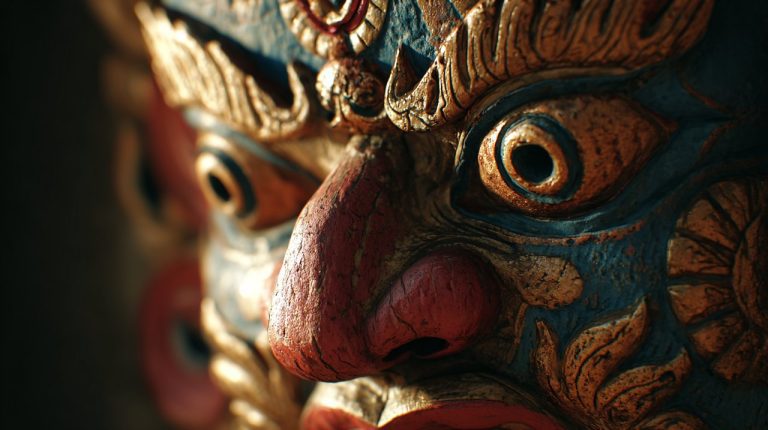What is a Lucky Number in China? Understanding Their Cultural Significance
Have you ever wondered why certain numbers in China, like the infamous ‘8’, fetch such astonishing premiums for phone numbers, license plates, or even apartment floors? It’s more than just a quirky cultural preference. For me, as someone who loves to explore ancient wisdom through a modern lens, it points to a fascinating cultural belief system.
We’re not just talking about superstition here. Instead, it’s a deeper dive into the subtle ways symbols resonate with us psychologically and how they can influence our perception of energy and fortune. Understanding these numerical preferences offers a truly unique insight into the heart of Chinese culture.

Chinese Numerology: The Foundation of Meaning
At its core, Chinese culture gives numbers a deep, almost living meaning. This often comes down to their sounds, or what we call homophones. It’s not just about math; it’s a fascinating system for understanding how certain sounds and their associated meanings can subtly influence our outlook on prosperity, harmony, or even potential challenges.
Think of it this way: Chinese numerical symbolism often hinges on homophonic associations. This means the sound of a number can strikingly resemble a word with either a positive or negative cultural connotation. This unique cultural lens shows us how everyday digits transform into powerful symbols. It’s about recognizing the subtle, yet profound, connections between language, sound, and our perception of fortune. This intricate system, much like the insights we gain from Chinese Astrology, provides a framework for understanding potential influences in our lives.
Auspicious Figures: Symbols of Good Fortune
Now, let’s explore the numbers that truly shine in Chinese culture—the ones people actively seek out and celebrate. These auspicious figures frequently pop up in important life events, business dealings, and personal choices, acting as powerful positive affirmations.
- Eight (八, bā): This is arguably the champion of lucky numbers. Why? Because it sounds very much like ‘fā’ (发), which means “to prosper” or “to get rich.” It’s a direct linguistic link to financial success and abundance.
- Consider this: The Beijing Olympics famously kicked off at 8:08 PM on August 8, 2008. You’ll also notice businesses often go to great lengths to secure phone numbers or addresses filled with eights, almost as a subconscious signal of their aspirations.
- Six (六, liù): This number resonates with the sound ‘liú’ (流), signifying “to flow smoothly,” or ‘lù’ (禄), meaning “prosperity” or “official’s salary.” It’s all about smooth progress and good fortune in your endeavors.
- A fascinating contrast: While in some Western cultures ‘666’ might carry negative connotations, in China, it’s often used as a genuine blessing for smooth sailing in business or life. It’s a beautiful example of how cultural context shapes meaning.
- Nine (九, jiǔ): Sounding like ‘jiǔ’ (久), which means “long-lasting” or “eternal,” this number has deep historical ties to imperial power and longevity. It suggests endurance and lasting success.
- For instance: Traditional Chinese weddings often incorporate nine layers of gifts or dishes, symbolizing a long and harmonious marriage—a wish for an enduring bond.
These aren’t just abstract ideas; they’re deeply embedded in the rhythm of daily life. From choosing a wedding date to negotiating a business deal, these preferences subtly guide decisions. Understanding them, much like exploring the characteristics of a Chinese Zodiac animal, offers a unique window into how ancient wisdom continues to inform modern choices. If you’re curious about how specific animals are imbued with cultural significance, delving into the traits of figures like the Rooster can provide further insight. Personality of a Rooster: A Guide to Its Cultural & Feng Shui Significance
Numbers of Caution: What to Avoid
Just as some numbers are embraced for their positive vibes, others are approached with a healthy dose of caution. Understanding these less auspicious associations gives us a much fuller picture of how numerical symbolism truly works in China.
- Four (四, sì): This is perhaps the most avoided number, and for a very clear, albeit somber, reason. Its sound is almost identical to ‘sǐ’ (死), which means “death.” This stark association understandably makes it highly undesirable.
- You’ll often find: Many buildings in China simply skip the 4th, 14th, or 24th floors. Hospitals and hotels also frequently avoid using ‘4’ in room numbers, demonstrating how deeply this belief is ingrained.
- Seven (七, qī): This one is a bit more nuanced. While not universally “unlucky,” its sound can sometimes resemble ‘qī’ (欺), meaning “to cheat” or “to deceive,” or ‘qì’ (弃), meaning “to abandon.” It also has ties to the Ghost Festival.
- It’s interesting to note: Some people might hesitate to choose ‘seven’ for significant events due to these associations. However, it’s not all negative; it also has positive links, like ‘qǐ’ (起), meaning “to rise.” It’s a number with a dual nature.
Recognizing these subtleties helps us truly appreciate the depth of Chinese cultural beliefs. Here, even a simple digit can carry layers of meaning and influence perception. This careful consideration of numerical symbolism, while different from concepts like the Evil Eye in other cultures, similarly highlights our universal human desire to understand and, perhaps, influence our fortune and protection.
The Enduring Influence of Numerical Beliefs
It’s truly remarkable how these ancient beliefs about lucky and unlucky numbers continue to deeply resonate in contemporary Chinese society. You can see these numerical preferences everywhere, from the price tag on a phone number to the floor chosen for an apartment. It’s a testament to how traditions can adapt and persist, evolving while still holding onto their core essence.
For me, diving into this isn’t about blindly following superstitions. It’s about appreciating a truly rich cultural tapestry and recognizing the subtle power of symbols. Just like some cultures find personal guidance in angel number sequences, Chinese culture discovers profound meaning in numerical homophones. It’s an invitation to consider how these symbols, whether we realize it or not, can shape our perception and experience.
This journey into Chinese lucky numbers offers us a glimpse into a worldview where every detail can hold significance. It prompts us to reflect on the ‘lucky’ elements we consciously or unconsciously choose to embrace in our own lives. For instance, consider how other potent symbols, like the mythical Pixiu, are believed to attract wealth and good fortune, influencing the objects we choose to surround ourselves with. Understanding how to properly engage with such powerful symbols can further deepen our connection to these ancient practices. How Do You Properly Wear and Activate a Pixiu Bracelet?
💡 Frequently Asked Questions
Chinese culture assigns rich meanings to numbers, primarily based on their sounds (homophones), which can resemble words with positive or negative connotations, thereby influencing perceptions of fortune and energy.
The number '8' (八, bā) is arguably the most sought-after lucky number because its sound resembles 'fā' (发), meaning 'to prosper' or 'to get rich.'
Yes, '6' (六, liù) signifies smooth progress and good fortune, and '9' (九, jiǔ) symbolizes long-lastingness or eternity, historically associated with imperial power.
The number '4' (四, sì) is the most avoided number in China because its sound is strikingly similar to 'sǐ' (死), meaning 'death.'
These beliefs influence decisions such as investing significant resources in phone numbers, license plates, and apartment floors containing auspicious digits, and avoiding unlucky numbers like '4' in building floor designations.








